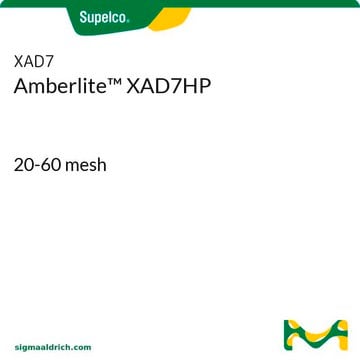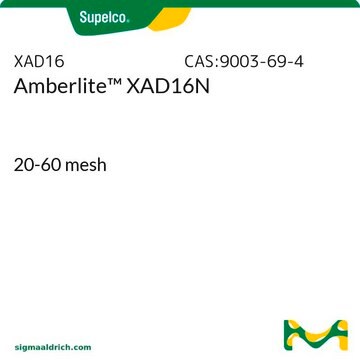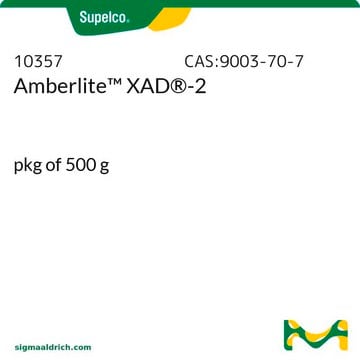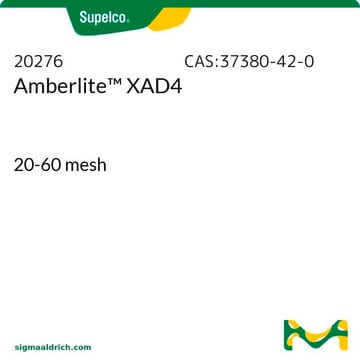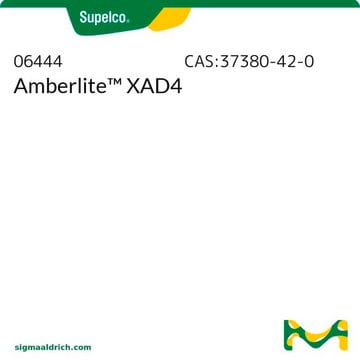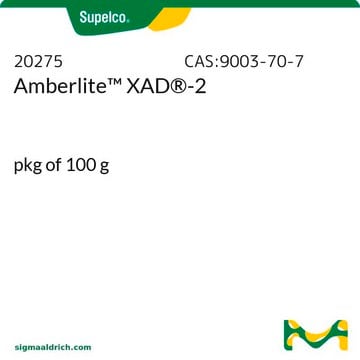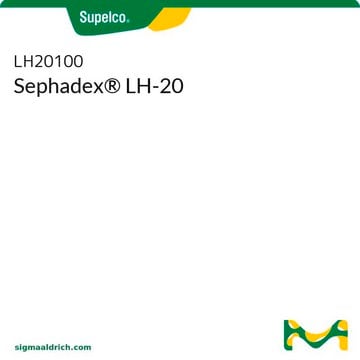XAD4
Amberlite™ XAD4 polymeric adsorbent
20-60 mesh
About This Item
Productos recomendados
product name
Amberlite™ XAD4, 20-60 mesh
form
beads
autoignition temp.
800 °F
technique(s)
LPLC: suitable
surface area
750 m2/g
matrix
styrene-divinylbenzene
matrix active group
polymer
particle size
20-60 mesh
pore size
~0.98 mL/g pore volume
100 Å mean pore size
density
1.02 g/mL (true wet)(lit.)
1.08 g/mL (skeletal)(lit.)
separation technique
reversed phase
¿Está buscando productos similares? Visita Guía de comparación de productos
General description
application
Other Notes
Mesh 20-60 are Cat. No. 20276, 10358, XAD4
Mesh 20-50 is Cat. No. 06444
Legal Information
Storage Class
11 - Combustible Solids
wgk_germany
WGK 3
flash_point_f
Not applicable
flash_point_c
Not applicable
ppe
Eyeshields, Gloves, type N95 (US)
Certificados de análisis (COA)
Busque Certificados de análisis (COA) introduciendo el número de lote del producto. Los números de lote se encuentran en la etiqueta del producto después de las palabras «Lot» o «Batch»
¿Ya tiene este producto?
Encuentre la documentación para los productos que ha comprado recientemente en la Biblioteca de documentos.
Nuestro equipo de científicos tiene experiencia en todas las áreas de investigación: Ciencias de la vida, Ciencia de los materiales, Síntesis química, Cromatografía, Analítica y muchas otras.
Póngase en contacto con el Servicio técnico